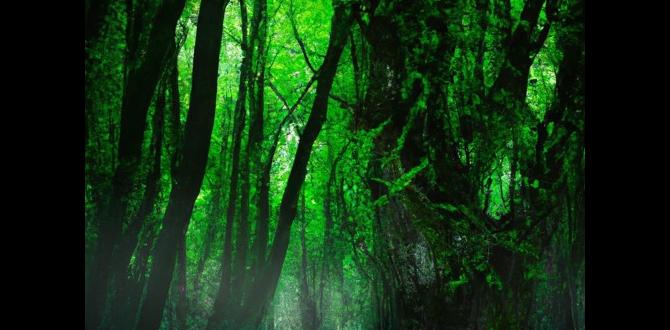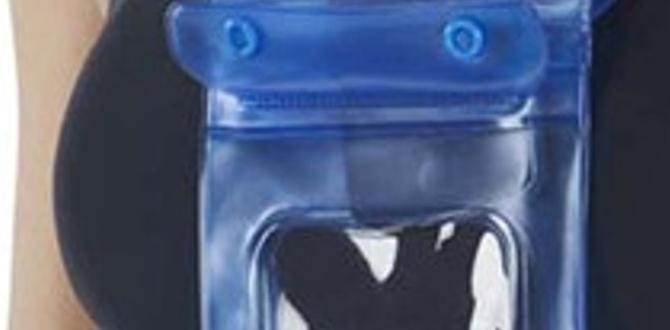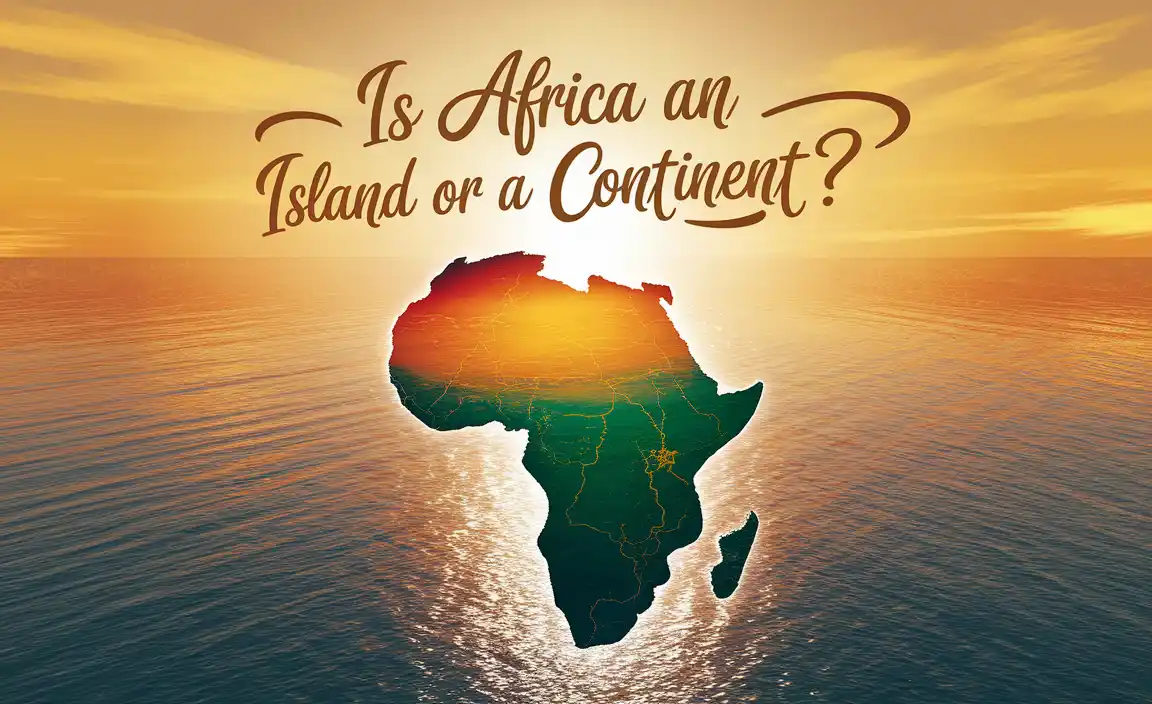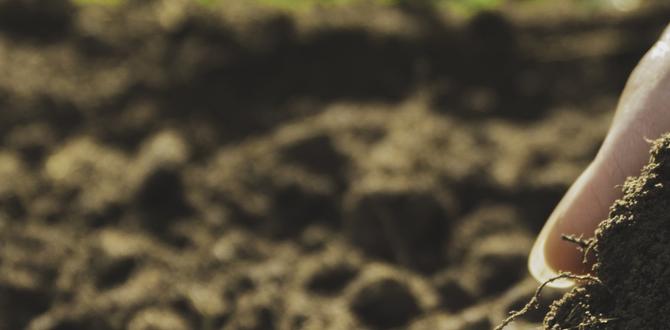Planning an Algeria winter trip is simple with these essential secrets! Discover the best times to go, what to pack for comfort, how to navigate diverse climates from the coast to the Sahara, and essential tips for a smooth, unforgettable journey.
Dreaming of an Algerian adventure but wondering about the winter months? You’re not alone! Many travelers assume this North African gem is best explored under the summer sun. However, winter offers a unique, often more comfortable, and sometimes more affordable experience, especially for those who prefer milder temperatures.
The key is knowing how to prepare. This guide is here to demystify Algeria’s winter charm, transforming potential worries into exciting possibilities. Get ready to uncover the secrets that will make your Algeria winter trip a breeze, from planning to packing and enjoying every moment.
Why Consider a Winter Trip to Algeria?
Algeria in winter is a revelation! Instead of sweltering heat, you’ll find pleasantly mild conditions along the coast, perfect for exploring historical sites and vibrant cities. The southern regions, while cooler, offer a stunningly clear sky for stargazing and an unparalleled desert experience without the intense summer sun. It’s a time when you can truly immerse yourself in the culture, enjoy fewer crowds, and discover hidden gems at a more relaxed pace.
Understanding Algeria’s Winter Climate
Algeria’s vastness means its winter climate varies significantly. The Mediterranean coast experiences cool, wet weather, while the interior and the Sahara Desert can get quite cold, especially at night.
Coastal Regions (North Algeria)
Cities like Algiers, Oran, and Annaba enjoy a Mediterranean climate. Winter here (December to February) typically brings:
- Temperatures: Average highs hover around 15-18°C (59-64°F), with lows dropping to 7-10°C (45-50°F).
- Rainfall: Expect rain showers throughout winter, though they are usually not prolonged and often interspersed with sunshine.
- Wind: Occasional windy days can make it feel cooler.
Sahara Desert Regions (South Algeria)
Visiting the Sahara in winter is a highlight for many. The days are usually sunny and pleasant, but nights can be quite chilly.
- Daytime Temperatures: Range from 18-25°C (64-77°F), making it ideal for desert excursions like camel treks and exploring ancient sites.
- Nighttime Temperatures: Can plummet to 5-10°C (41-50°F), and even below freezing in some dune areas. Proper layering is crucial.
- Clear Skies: Winter offers exceptionally clear nights, perfect for stargazing.
Interior Plateaus
Regions like Constantine experience a more continental climate, with colder temperatures and potential for frost.
- Temperatures: Can be significantly colder than the coast, with average highs of 10-15°C (50-59°F) and lows frequently dipping below freezing.
- Snowfall: While rare in most of Algeria, higher elevations in the interior might occasionally see light snow.
Essential Packing Essentials for Algeria in Winter
Packing smart is key to comfort, especially with the varying Algerian winter climate. Think layers, versatility, and essential comfort items.
Clothing: Layers Are King
The secret to staying comfortable is layering. This allows you to adapt to changing temperatures throughout the day and between different regions.
- Base Layers: Thermal tops and bottoms are your best friend, especially for the Sahara or cooler evenings.
- Mid Layers: Fleece jackets, sweaters, or cardigans provide warmth.
- Outer Layer: A waterproof and windproof jacket is essential for the unpredictable coastal weather. For the Sahara, a warm, insulated jacket is a must for nights.
- Bottoms: Comfortable trousers or jeans. Consider thermal linings for desert nights.
- Footwear: Comfortable walking shoes or boots are essential for exploring. Waterproof options are great for the coast. For the Sahara, closed-toe shoes that can handle sand are ideal.
- Socks: Warm socks, including wool or thermal blends, are important for keeping your feet cozy, especially in the desert.
- Headwear: A warm hat or beanie is crucial for chilly mornings and nights, particularly in the desert. A scarf can offer extra protection from wind and sun.
- Gloves: Lightweight gloves are useful for cooler days and nights.
Personal Comfort and Care On-the-Go
Travel comfort extends beyond clothing. For those who may need extra support for continence or simply wish for added peace of mind during long journeys or in varying facilities, discreet personal care items are invaluable.
- Adult Diapers/Protective Underwear: If you manage incontinence or prefer the security of protective underwear, bringing a sufficient supply is vital. Brands offering high absorbency and a discreet fit are excellent for travel. Many modern options are designed to look and feel like regular underwear, offering confidence and comfort whether you’re on a plane, on a bus tour, or exploring ancient ruins.
- Child Diapers/Pull-Ups: For families traveling with young children, maintaining their comfort and hygiene is paramount. Pack a generous supply of diapers and pull-ups, along with changing essentials like wipes and a portable changing pad. This ensures fuss-free stops and comfortable explorations.
- Moisturizing Cream: Winter air, especially in dry desert climates, can be harsh on the skin. Pack a good moisturizer to keep skin hydrated.
- Lip Balm: Essential for preventing chapped lips in dry or windy conditions.
- Hand Sanitizer: Always a good idea for maintaining hygiene on the go.
- Basic First-Aid Kit: Include essentials like bandages, antiseptic wipes, pain relievers, and any personal medications.
Travel Accessories for Algeria
These items enhance your travel experience and preparedness.
- Adapter: Algeria uses Type C and Type F electrical outlets. A universal adapter is a wise choice.
- Power Bank: Essential for keeping your devices charged, especially during long excursions away from power sources.
- Reusable Water Bottle: Stay hydrated and reduce plastic waste.
- Camera: To capture the stunning landscapes and cultural encounters.
- Small Backpack: For daily essentials like water, snacks, a camera, and a jacket.
- Travel Pillow: For comfort on long journeys, whether by plane, train, or bus.
- Headlamp/Small Flashlight: Invaluable for navigating in the dark, particularly in desert camps or during power outages.
Planning Your Algeria Winter Itinerary
A well-planned itinerary ensures you make the most of your winter trip. Here’s how to approach it:
Best Time to Visit (Winter Months)
While “winter” spans December to February, the shoulder months can also be pleasant:
- December & January: Generally the coolest and wettest months on the coast. Ideal for experiencing authentic city life. The Sahara is crisp and clear, perfect for desert adventures.
- February: Often sees a slight increase in temperatures and can be a good balance between milder weather and fewer crowds before spring arrives.
- November & March: These months are technically autumn/spring but offer winter-like conditions with potentially calmer weather and fewer tourists than peak seasons.
Popular Destinations in Winter
Some places truly shine during the winter months:
- Algiers: Explore the Casbah, museums, and enjoy a more relaxed pace in the capital city. The milder weather is perfect for walking.
- Oran: Discover its Spanish influences and lively atmosphere. Coastal walks are more comfortable than in summer.
- Constantine: The “City of Bridges” is dramatic in winter. Its elevated position can mean cooler temperatures, but the unique scenery is worth it.
- Timgad & Djemila: These Roman ruins are magnificent, and winter’s cooler air makes exploring them a pleasure.
- Sahara Desert (e.g., Timimoun, Ghardaïa, or further south near Djanet): This is prime time for desert tours. Daytime temperatures are ideal for activities, and the starry nights are unforgettable.
Sample Winter Itinerary Ideas
Here are a couple of ideas to get you started:
| Duration | Focus | Sample Destinations | Winter Highlights |
|---|---|---|---|
| 7-10 Days | Coastal Cities & Roman Ruins | Algiers, Tipasa, Cherchell, Djemila, Constantine | Casbah exploration, historical sites in pleasant temps, city culture. Coastal storms can be dramatic and beautiful. |
| 8-12 Days | Sahara Desert Adventure | Algiers (arrival/departure), Ghardaïa, Timimoun, Taghit, or Djanet (for Tassili n’Ajjer) | Camel trekking, desert camping under clear skies, stargazing, dune walks, visiting oasis towns. |
| 10-14 Days | North to South Discovery | Algiers, Roman Ruins (e.g., Timgad), Ghardaïa, Sahara Camp | Experience diverse Algerian landscapes and climates, from cooler coastlines to warm desert days. |
Navigating Transportation in Algeria in Winter
Getting around Algeria in winter is generally straightforward, though weather can occasionally cause minor delays.
Domestic Flights
For long distances, especially to the Sahara, domestic flights with Air Algérie are efficient. Book in advance, particularly if traveling around holidays.
Trains
The SNTF (Société Nationale des Transports Ferroviaires) operates a railway network connecting major coastal cities. It’s a scenic and comfortable way to travel between Algiers, Oran, and Constantine. Schedules might be slightly reduced in winter, so check in advance.
Buses
A vast network of private and public bus companies (like Satco, Loubise) connect most towns and cities. They are an affordable option, but journeys can be long. Coastal routes are usually unaffected by winter weather, but mountain passes could experience occasional disruptions.
Car Rental
Renting a car offers the most flexibility. Ensure you are comfortable driving in varied conditions. For desert travel, especially in winter, a 4×4 is highly recommended if you plan to venture off main roads. Familiarize yourself with local driving customs and road safety guidelines from resources like the U.S. Department of State.
Weather Preparedness and Safety Tips
Being prepared ensures a safe and enjoyable trip during the Algerian winter.
Stay Informed About Weather
Check local weather forecasts regularly, especially before embarking on long journeys or desert excursions. Local news channels and weather apps can provide updates.
Sahara Desert Specifics
- Guided Tours: For remote desert areas, always opt for reputable tour operators. They have the necessary equipment, expertise, and communication devices.
- Inform Someone: If you’re venturing out independently (not recommended for deep desert), always let your accommodation or a local contact know your plans and expected return time.
- Water is Key: Even in cooler temperatures, dehydration is a risk in the desert. Carry plenty of water.
- Sun Protection: While the sun might not be as intense as in summer, it’s still strong. Wear sunscreen, a hat, and sunglasses during the day.
Coastal and City Safety
- Be Aware of Your Surroundings: Like any city, be mindful of petty theft, especially in crowded areas or markets.
- Respect Local Customs: Algeria is a predominantly Muslim country. Dress modestly, especially outside major tourist hubs, and be respectful of local traditions during the holy month of Ramadan if your trip coincides.
- Learn Basic Arabic/French Phrases: While French is widely spoken in business and tourist areas, knowing a few basic Arabic phrases (e.g., “Salam Alaikum” for hello, “Shukran” for thank you) is always appreciated.
Healthcare and Emergency
Major cities have good hospitals. For minor issues or to ensure you have what you need for personal comfort or continence management during your travels, having discreet personal care items like adult diapers or child diapers packed is a practical step. Reputable brands for adult diapers can offer significant comfort and manageability, allowing you to focus on your trip.
Similarly, having a good supply for children prevents potential disruptions. For travel insurance and emergency contacts, it’s always wise to consult with your country’s foreign travel advice services, such as the advice provided by the UK government’s foreign travel advice for Algeria.
Food and Drink in Algerian Winter
Algerian cuisine is hearty and delicious, perfect for a winter trip.
- Couscous: A staple, especially popular on Fridays.
- Tagine: Slow-cooked stews, often with lamb or chicken, flavored with spices.
- Harira: A hearty tomato and lentil soup, traditionally eaten during Ramadan but available year-round, perfect for warming up.
- Mechoui: Roasted lamb or sheep, a celebratory dish.
- Pastries and Mint Tea: Enjoy sweet treats and the ubiquitous and refreshing mint tea in local cafes.
Tap water is generally not recommended for drinking. Stick to bottled water, readily available throughout the country.
Cultural Etiquette for Winter Travelers
Engaging respectfully with the local culture enhances your travel experience immensely.
- Greetings: A warm “Salam Alaikum” (Peace be upon you) is a polite way to greet people. The response is “Wa Alaikum Salam.”
- Modesty: Dress modestly. For women, this typically means covering shoulders, knees, and elbows. For men, long trousers and shirts are appreciated.
- Hospitality: Algerians are known for their hospitality. If invited for tea or a meal, it’s a great honor.
- Photography: Always ask permission before taking photos of people, especially women and children.
- Ramadan: If traveling during Ramadan, be mindful of fasting hours. Eating, drinking, or smoking in public during fasting hours can be seen as disrespectful. Many restaurants may have limited hours or be closed during the day.
Frequently Asked Questions
A1: Yes, Algeria is generally safe for tourists. Like any destination, it’s wise to be aware of your surroundings, especially in crowded city areas, and to stick to reputable tour operators for desert excursions. Winter offers a calmer travel experience.
Q2: What kind of clothing is most suitable for the Sahara Desert in winter?
A2: Layering is key! Pack warm layers like thermal base layers, fleece, and a heavy, insulated jacket for the cold nights. During the day, lighter clothes with sun protection (hat, sunglasses) are comfortable. Closed-toe shoes are a must.





